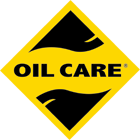Dealing with oil spills
Prepare to deal with an oil spill
If you are responsible for any oil storage you should be prepared for an accident, oil leak or spill. You need to know what to do.
Being prepared will reduce the chances of you having an incident that could cause pollution and damage your property. Keep an oil spill kit with sorbent materials (products that will soak up oil but not water) and leak sealing putty near your oil store so you can get to it quickly if you need it. Commercial and industrial spill kits may contain additional items, for example drain blockers, and large amounts of sorbents.
Dealing with an oil spill
If you discover an oil leak, or have a spill, you need to deal with it immediately. If you don’t you could cause a serious pollution incident and may have enforcement action taken against you.
Take action:
- If you can safely stop the flow of oil do. If there’s room, and you won’t get oil on your skin, put a bucket under the leak and close valves or taps.
- Use the contents of your spill kit, sandbags or earth to soak up the oil if it’s on a hard surface and stop it entering a river, stream, watercourse, and drains or soaking into the ground.
- Never wash any spilt oil away into drains, a gully or into the ground. Most drains connect to the nearest watercourse and oil can cause serious pollution of rivers, streams and groundwater.
- Never use detergents to clean up spilt oil; you could cause a worse pollution incident. The detergent itself is a pollutant and mixes oil into the water.
If you need help:
Don’t put yourself at risk to clean-up an oil spill. If you can’t clean-up the spill yourself or want some advice about a spill call the national incident/pollution hotline 0800 80 70 60, the line is open 24 hours, calls are free from land lines but there may be a change if you’re using a mobile.
You may be in an environmentally sensitive location which needs a very quick response to prevent serious pollution of the local environment and nearby groundwater drinking water supplies.
Contact your fuel supplier for advice (they may offer a clean up service or be able to recommend a course of action).
Contact your insurance company and tell them that there’s been a leak or spill from your tank or pipework, that a clean up operation using a professional company may be needed and to claim the cost of your lost oil.
Protect yourself and your property
If spilt oil has spread into a river, stream or drains or you don’t know where it’s gone you’re likely to need help to clean up the spill.
If the oil has soaked into the soil/ground, you’ll need to take action quickly to prevent it soaking further into the ground and reaching building foundations or groundwater supplies. You’ll need a professional company with training and accreditation to clean up oil that’s soaked into the ground. Removal and disposal of soil contaminated with oil can be very expensive; we recommend you contact your insurance company as soon as possible.
Don’t risk leaving an oil spill; it can damage the foundations of a building and kill plants and wildlife.
Leaking tanks
If you find a leak from your tank try to put a container under the leak to stop more oil spreading. Use leak sealing putty from your spill kit to cover the leaking area, wear rubber or vinyl gloves to protect your skin.
For plastic tanks you may be able to temporarily stop the leak by rubbing a bar of soft soap across the leak – make sure you protect yourself by wearing rubber or vinyl gloves.
Phone for help; putty or soap are only short term answers to a leak. Your tank may need to be emptied to stop your oil causing pollution. Your fuel supply company or insurance provider may be able to help.
Report an oil spill
In England, Northern Ireland and Scotland call the incident hotline telephone 0800 80 70 60 (24-hour service), free from land lines there may be a fee from mobile numbers.
You can use this number to report an oil spill, or other environmental incident, across the United Kingdom.
In Wales call 0300 065 3000 (24-hour service).



